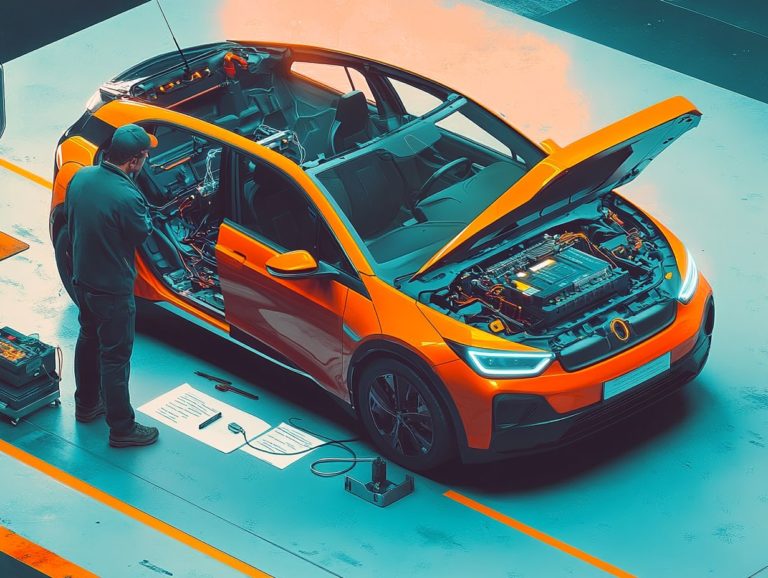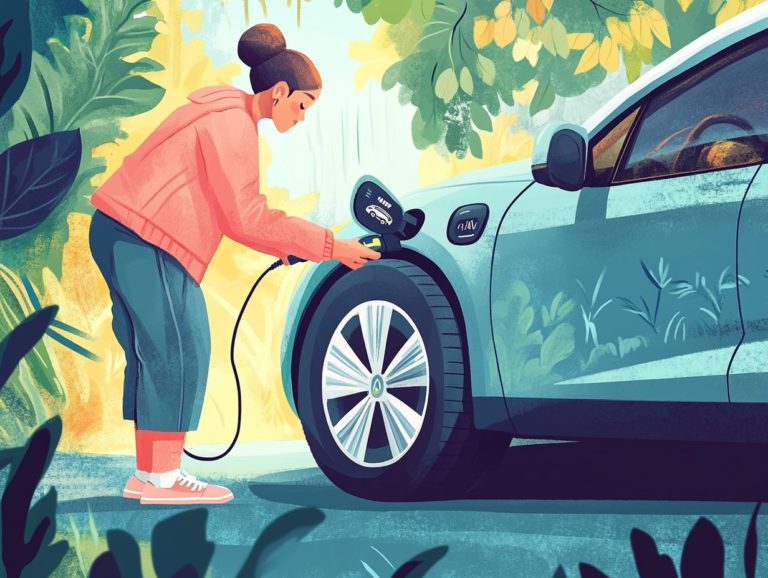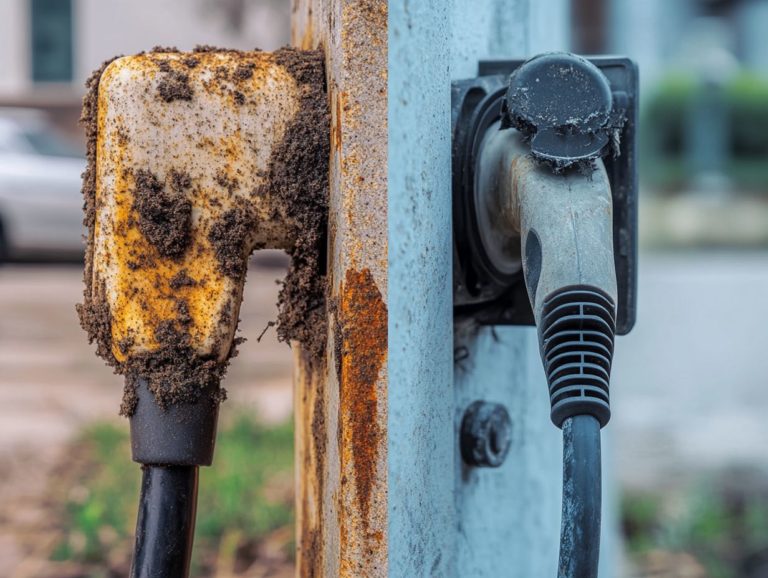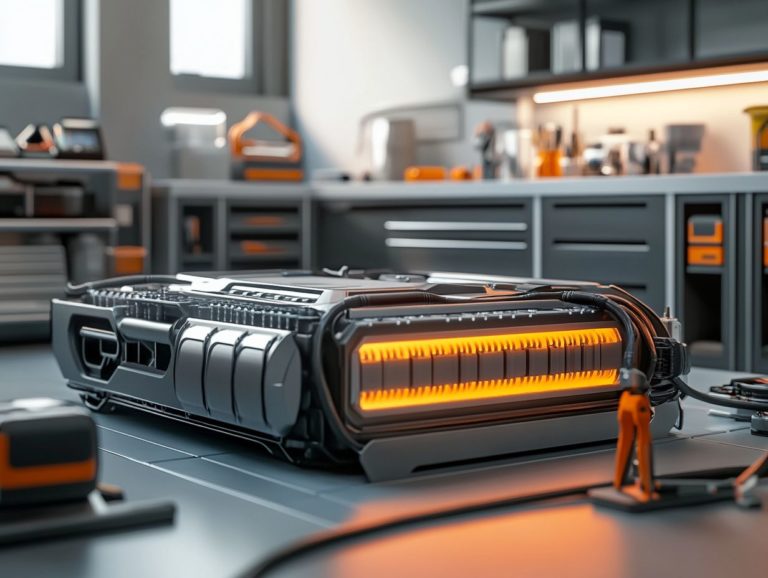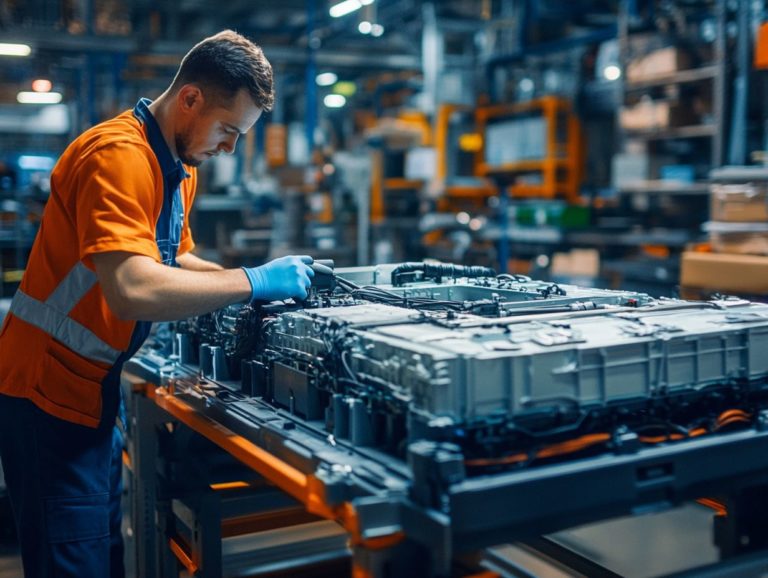the future of electric vehicle maintenance
As electric vehicles (EVs) gain momentum in the automotive market, it s essential for you to grasp their unique maintenance needs whether you re an owner or part of the industry.
This article explores the current state of EVs and their unique maintenance needs. It also discusses challenges you might face as a driver or service provider.
With advancements in technology and favorable government policies on the way, we’ll explore promising solutions and future trends in EV maintenance that can benefit you.
Embark on this journey with us as we navigate this evolving landscape and reveal what the future holds for maintaining electric vehicles.
Contents
- Key Takeaways:
- The Rise of Electric Vehicles
- Unique Maintenance Needs of Electric Vehicles
- The Challenges of Electric Vehicle Maintenance
- Improving Electric Vehicle Maintenance
- The Role of Government and Industry in Supporting Electric Vehicle Maintenance
- The Future of Electric Vehicle Maintenance
- Frequently Asked Questions
- What is the future of electric vehicle maintenance?
- Will electric vehicles require less maintenance than traditional vehicles?
- How will mechanics stay updated on electric vehicle maintenance?
- Will electric vehicle maintenance be more expensive than traditional vehicle maintenance?
- Can electric vehicle owners perform their own maintenance?
- How will electric vehicle maintenance impact the environment?
Key Takeaways:
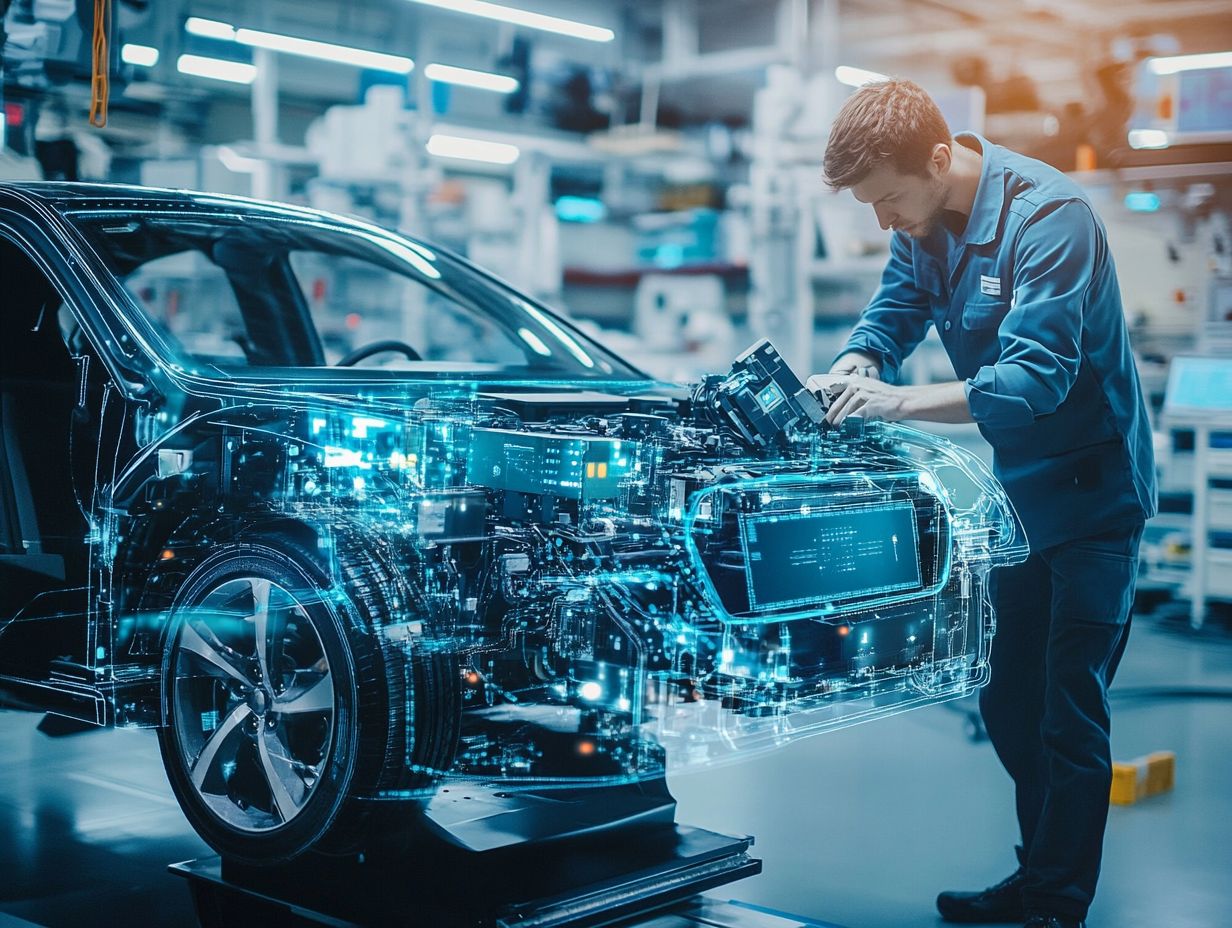
- Electric vehicles are set to become more common soon.
- Understanding their maintenance needs is vital!
- Maintaining electric vehicles includes specialized battery and motor care, which may present challenges due to limited parts and higher costs.
- The future of EV maintenance will involve advancements in technology and support from government and industry through incentives and regulations.
The Rise of Electric Vehicles
The rise of electric vehicles (EVs) signifies a remarkable transformation in the automotive industry. This change is driven by new technology, environmental considerations, and government initiatives championed by leaders like President Joe Biden, all aimed at reducing emissions and advocating for renewable energy sources.
As prominent car manufacturers such as General Motors and Tesla embrace this shift, the landscape of vehicle ownership undergoes a profound evolution. This shift illuminates the distinct maintenance requirements that set electric vehicles apart from traditional internal combustion engines.
Current State and Future Projections
The current landscape of electric vehicles (EVs) presents a rapidly evolving sector within the automotive industry. It entices you with the promise of efficiency savings and lower maintenance costs compared to traditional vehicles.
Recent data reveals that EV sales have skyrocketed over the past few years. They have captured a substantial slice of the market and resonate with eco-conscious consumers like yourself. As advancements in battery technology continue to enhance their range and reduce charging times, you ll likely want to jump on board and switch to an EV!
Innovations like regenerative braking improve energy efficiency and enhance vehicle safety by optimizing braking systems. These compelling factors not only shape your preferences but also redefine maintenance requirements.
With fewer moving parts in EVs, you can look forward to even greater reductions in upkeep costs, making the transition to electric all the more appealing.
Unique Maintenance Needs of Electric Vehicles
Electric vehicles come with distinct maintenance requirements that set them apart from traditional internal combustion vehicles. This difference largely stems from their electric drivetrain, which demands specialized expertise from automotive technicians and repair shops. Understanding the costs of EV maintenance is essential to guarantee optimal performance and longevity.
Essential elements of EV maintenance encompass:
- Battery upkeep and replacement
- Tire rotation
- Brake service
- Fluid management (coolant and brake fluid)
- Careful monitoring of suspension systems to effectively tackle wear and tear
Battery Maintenance and Replacement
Battery maintenance is essential for anyone owning an electric vehicle. The battery is the most expensive component that may need replacement after the warranty expires.
To achieve optimal performance and longevity, you ll want to explore various intricacies, such as monitoring battery health and understanding how charging systems operate. Regularly checking the battery’s state of charge, voltage levels, and temperature allows you to spot potential issues early.
Being aware of signs of degradation like diminished range or extended charging times can help you avoid unexpected failures. Leaning on professional EV maintenance services can further ease your worries.
Skilled technicians at repair shops are well-prepared to offer thorough battery assessments, maintenance, and timely replacements, ensuring your vehicle remains in peak condition.
Motor Maintenance and Repair
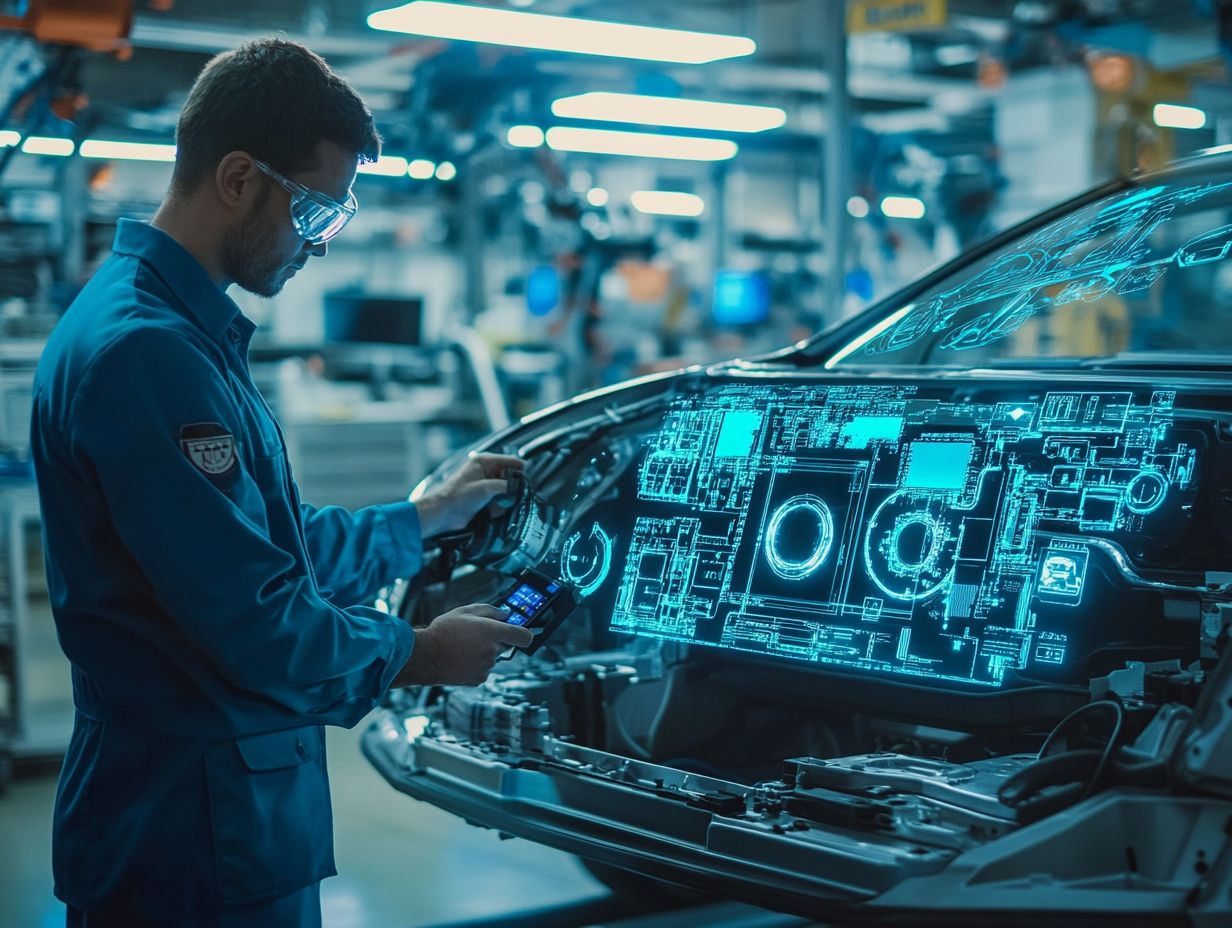
Motor maintenance and repair in electric vehicles center on the efficiency and reliability of the electric drivetrain. This demands specialized knowledge from automotive technicians to accurately diagnose and resolve potential issues.
Grasping these unique systems is essential. Maintenance protocols diverge significantly from those of traditional cars. While conventional vehicles usually focus on oil changes and fuel filter replacements, maintaining electric motors requires regular inspections of battery systems, electrical connections, and cooling mechanisms.
Technicians must also be skilled in utilizing advanced diagnostic tools to troubleshoot any irregularities. This may involve software updates or recalibrations. This specialized expertise often includes a solid understanding of electronics and programming, underscoring the evolving landscape of automotive technology and the necessity for continuous training in electric vehicle maintenance.
The Challenges of Electric Vehicle Maintenance
Electric vehicles offer exciting benefits! However, they also introduce maintenance challenges that can impact you as a vehicle owner and the repair shops you rely on. To stay informed about these developments, check out what to expect in electric vehicle design trends.
One key issue is the availability of parts, which can complicate repairs. The overall cost of maintenance may also be higher compared to traditional vehicles, prompting you to consider these factors carefully as you navigate your electric vehicle ownership experience.
Availability of Parts and Services
The availability of parts and services for electric vehicles is a pressing concern for you as a consumer and for automotive repair shops alike. Finding essential parts can be a real challenge, so it s crucial to stay ahead!
The specialized components required for EV maintenance can often lead to longer wait times and increased repair costs. Difficulties in sourcing essential parts such as battery packs, electric motors, and advanced control modules may not make them easily found at your local suppliers. Such scarcity can turn timely maintenance into a daunting task, potentially leaving you sidelined.
As electric vehicles gain popularity, the demand for well-trained automotive technicians becomes critical. By implementing comprehensive training programs that focus on EV systems, you can ensure that technicians are equipped to handle the complexities of electric vehicle repairs. This enhances service efficiency and boosts customer satisfaction.
Cost of Maintenance
The cost of maintenance for electric vehicles can vary significantly. Many owners discover that the long-term savings on fuel and reduced mechanical issues can more than balance out the initial maintenance costs.
Several factors contribute to this variability, such as the type and frequency of repairs needed, the availability of specialized services, and the expertise of technicians who are well-versed in electric systems.
For example, while electric vehicles require less routine maintenance like oil changes certain repairs can be more intricate and pricey, especially when dealing with high-voltage components. In contrast, traditional vehicles may have lower routine service costs but incur higher expenses due to more frequent breakdowns and repairs.
This comparative perspective reveals that while upfront expenses for electric vehicle maintenance may seem daunting, many drivers ultimately come to appreciate the overall cost-effectiveness as they adapt to their vehicles’ unique demands.
Improving Electric Vehicle Maintenance
Enhancing electric vehicle maintenance is crucial for safeguarding the longevity and performance of these advanced machines. With an array of new technologies and solutions emerging, automotive technicians are better equipped than ever to provide efficient and effective service, especially as we look towards the future of self-driving electric vehicles.
New Technologies and Solutions
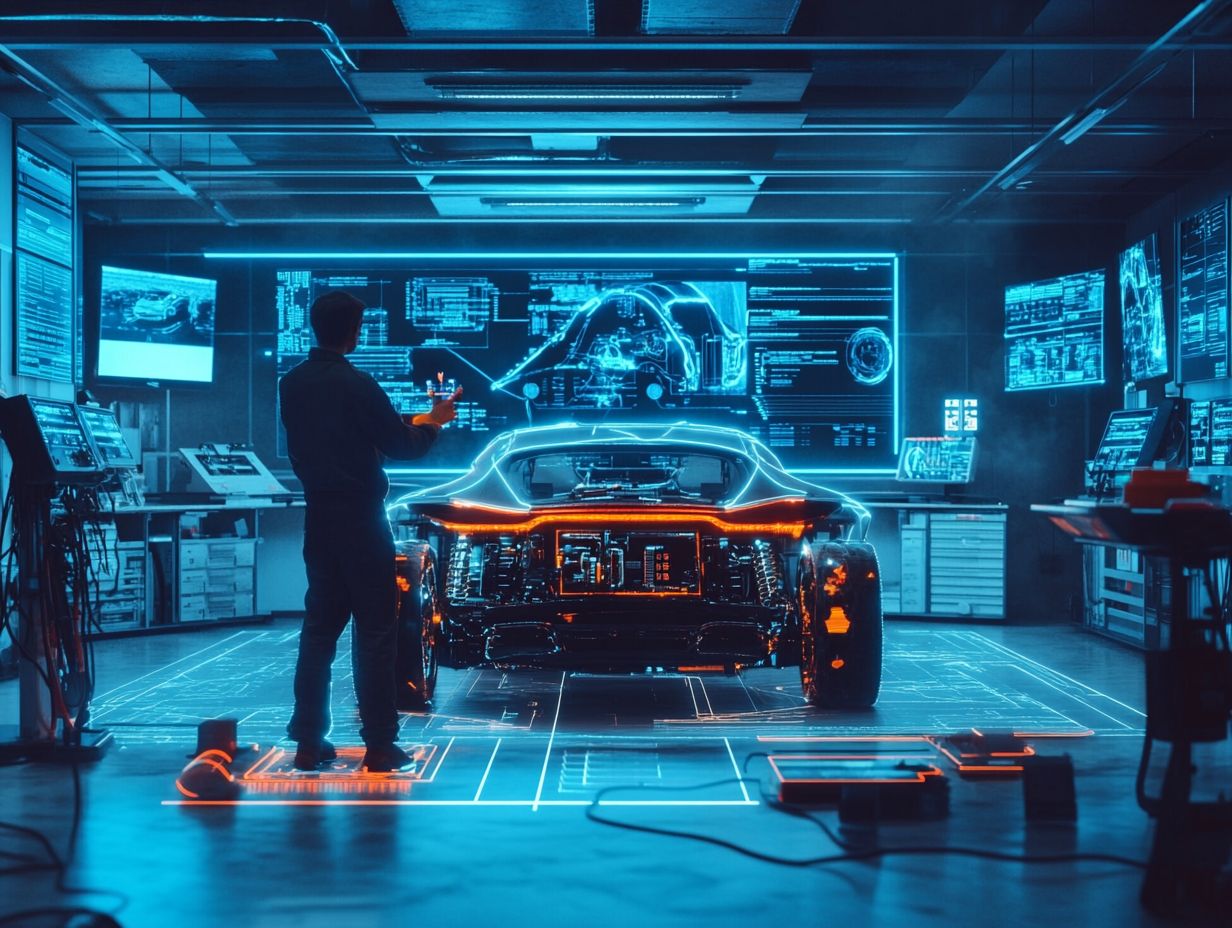
New technologies are transforming electric vehicle maintenance, including understanding EV charging station maintenance. These advancements enable repair shops to work more efficiently and provide essential tools for technicians.
These advancements include sophisticated software that streamlines diagnostics. This allows for quicker and more accurate assessments of a vehicle s health.
Predictive maintenance tools use data to predict problems before they escalate. This effectively reduces downtime and boosts reliability.
The importance of technology training cannot be overstated. It equips technicians with the latest knowledge on specialized EV systems, ensuring they stay updated with rapid industry changes.
This blend of innovation and skill development is vital for maintaining the longevity and performance of electric vehicles.
The Role of Government and Industry in Supporting Electric Vehicle Maintenance
Government and industry support for electric vehicle maintenance is increasingly crucial. Policies, incentives, and regulations impact the accessibility of services and the sustainability of EV ownership.
Incentives and Regulations
Government incentives and regulations are pivotal for shaping support for electric vehicle maintenance. They motivate repair shops and technicians to adapt to the unique needs of EVs.
These initiatives include grants designed to train technicians in EV technology. This ensures the workforce is well-equipped to meet the increasing demand for electric vehicle service.
Many states, notably California, offer subsidies to repair shops. This eases the financial burden of implementing eco-friendly practices, such as investing in specialized tools.
For example, California’s Clean Vehicle Rebate Project encourages the purchase of electric vehicles and bolsters the infrastructure necessary for their maintenance.
Regulations promoting sustainable practices enhance this ecosystem. They help technicians and consumers engage confidently with the electric vehicle market.
The Future of Electric Vehicle Maintenance
Get ready! The future of electric vehicle maintenance is bright and full of opportunities. Continuous innovations and evolving industry standards will significantly improve service quality and efficiency, making it important to consider understanding electric vehicle maintenance costs.
This transformation is set to reshape the automotive landscape, benefiting repair shops and technicians alike. Embracing these changes will elevate skills and expand opportunities in this dynamic field.
Predictions and Possibilities
Predictions for the future of electric vehicle manufacturing reveal a trend toward heightened specialization. Advanced training will be essential to keep pace with evolving technology and new industry standards.
As battery technology advances, it’s crucial to stay informed about the latest diagnostic tools that drive efficient EVs. Repair shops will likely evolve into high-tech hubs with specialized tools.
Consumer expectations will shift, pushing for quicker and more efficient service.
You might also see an increase in partnerships between manufacturing companies and local repair shops. This fosters continuous learning and resource sharing.
As a consumer, you will prioritize service centers that demonstrate extensive knowledge and embrace cutting-edge technology for optimal vehicle performance and reliability.
Frequently Asked Questions
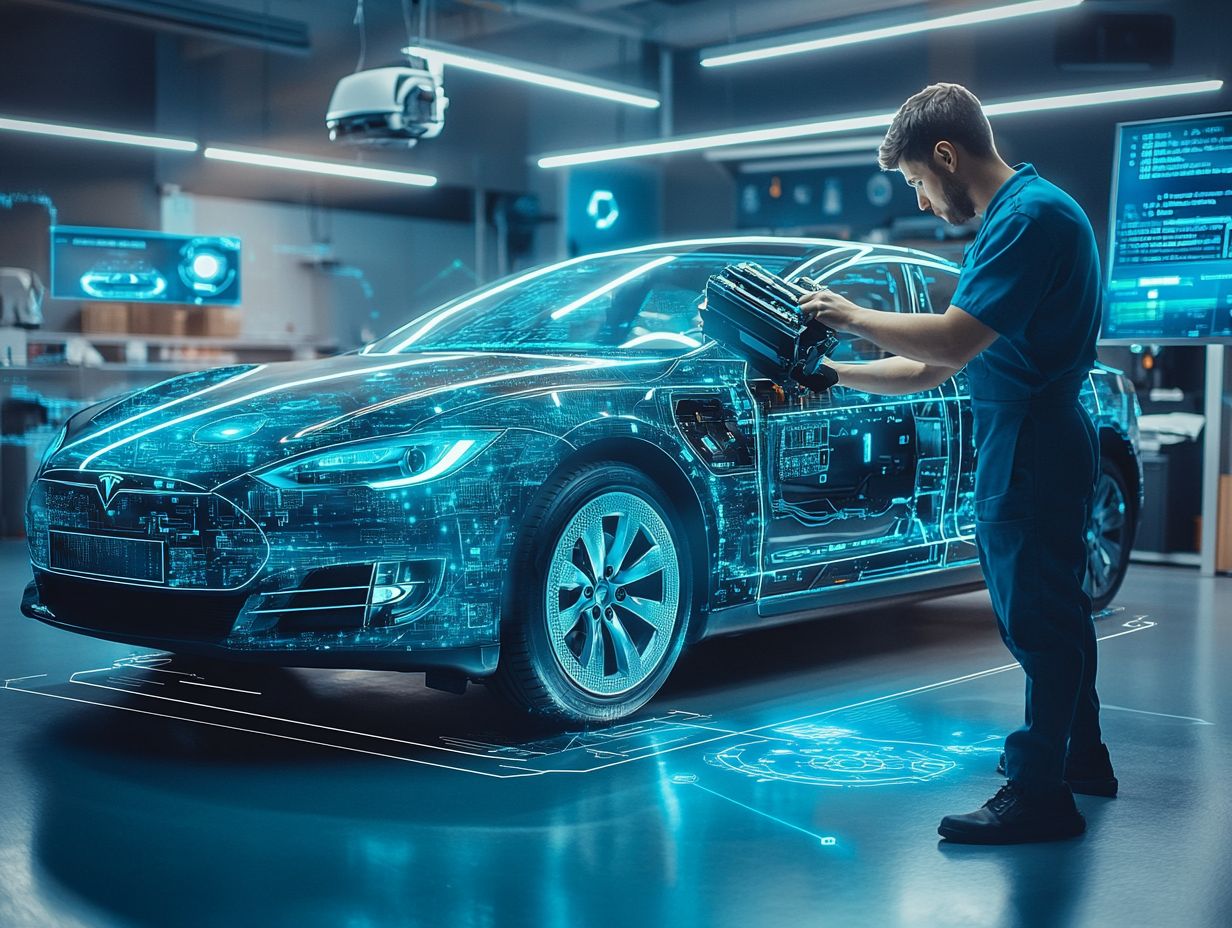
What is the future of electric vehicle maintenance?
The future of electric vehicle maintenance is expected to involve more advanced technology, reduced maintenance costs, and increased convenience for owners.
Stay updated on the latest trends and consider exploring training options in electric vehicle maintenance!
Will electric vehicles require less maintenance than traditional vehicles?
Yes, electric vehicles are expected to need less maintenance. Their simpler design and fewer moving parts contribute to this advantage.
How will mechanics stay updated on electric vehicle maintenance?
Mechanics must undergo specific training and certification. This ensures they keep up with evolving technology and techniques.
Will electric vehicle maintenance be more expensive than traditional vehicle maintenance?
Over time, electric vehicle maintenance is likely to be more cost-effective. They have fewer components and need less frequent maintenance.
However, initial costs for specific tools and training might make it pricier at first.
Can electric vehicle owners perform their own maintenance?
Owners can handle basic tasks, like tire rotations and brake pad replacements. For specialized repairs, it s best to rely on trained professionals to avoid safety risks.
How will electric vehicle maintenance impact the environment?
Electric vehicles are set to benefit the environment by producing no emissions. They also have a smaller carbon footprint.
The use of sustainable materials and reduced oil changes will contribute to a greener future.

